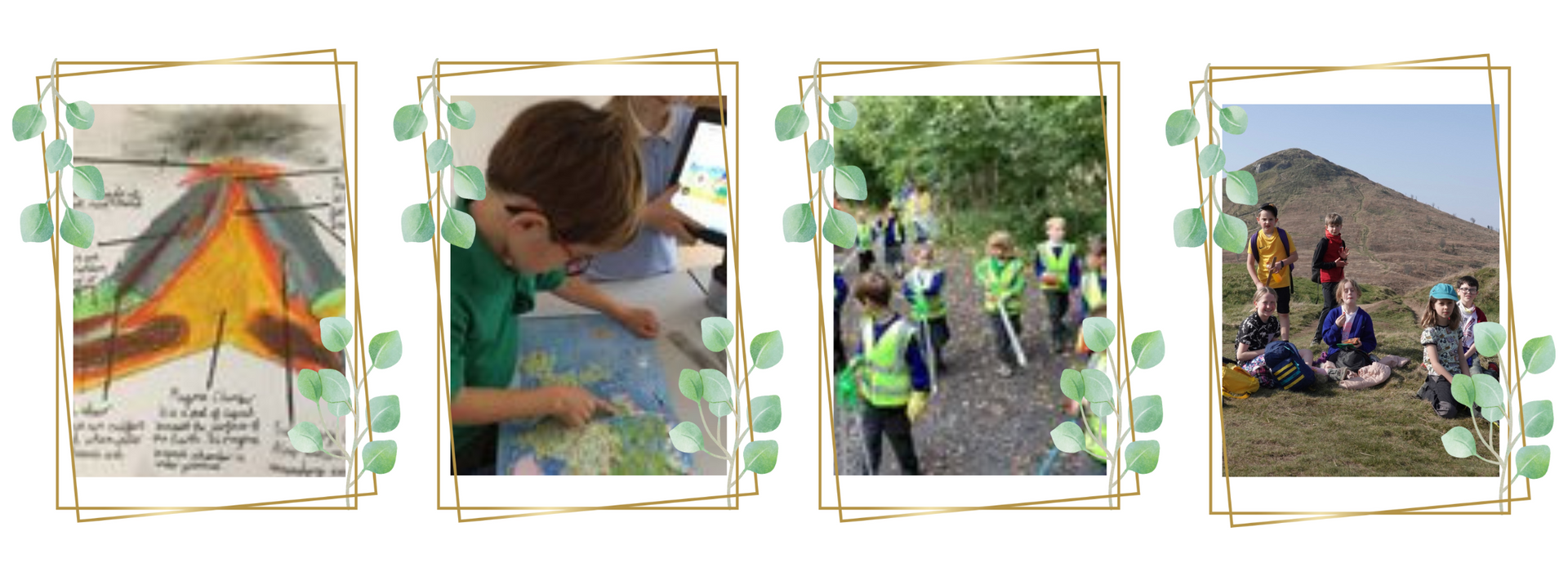

Intent
- To inspire and challenge our children, through a safe and happy learning environment, to achieve excellent standards including all aspects of the National Curriculum objectives for geography
- Teaching of geography will enable children to have a secure understanding and knowledge of globally significant places and the processes involved that shape the world
- Inspire awe and wonder about the world around them
- Develop geographical skills to collect, interpret and communicate information in a variety of ways and enable children to identify these skills that a geographer needs
- Understand the connectedness of human and physical features within the world.
- To enable our children to articulate their learning confidently and to remember knowledge and vocabulary
- To ensure that any gaps in learning, as a result of COVID, are closed and pupils meet age related expectations in Geography
|
Our Implementation: - Our pedagogy is based on Elevate’s principles of learning so revisiting previous learning is always at the beginning of a session, along with probing questions of all learners to ensure we develop deeper understanding. Learning is revisited at regular opportunities both from within the year and longer term – this is explicitly planned for. - We follow a familiar model for planning of Collect, Connect and Create – this means that we frame the learning through collecting information around each step of learning, make connections within it (and to other areas of learning) and then create – applying and communicating the geographical understanding. - In EYFS children will be seen to be exploring their environment, noticing the differences between human made areas and more natural spaces - In KS1 children concentrate on their local environment and begin using and creating maps. They find out about the way their country and the world is created from land and water and also expand to look at an area of the world outside their local environment. - As children embark on KS2 we have organized the locational geography to begin at home in the UK, evolving from their Y2 information base and connecting their own growing awareness of space and time and travel. - Y4 spreads to Europe, understanding the continent we live in and making connections to the history curriculum and the Roman Empire. It further strengthens this by comparing modern day Athens to our local city of York after studying the Ancient Greeks. Processes such as the water cycle are introduced, supporting the science curriculum. - Y5 expands to North America, at more of the socio-economic elements of geography, the push/pulls involved in human movements and the interconnectedness of people and physical landscapes. Also looking at earthquakes and the magnitude of these physical processes. - In Y6, now the children have more maturity to understand the complex challenges of the human impact on the natural environment, the children move to the continent of S America, they revisit the process of the river system and deepen their understanding. - Our next area of geography to teach in KS2 this year will be comparing that locational knowledge to our local area and embedding fieldwork into real contexts. We use our position in a National Park to look at how people manage environments and the impact of human activity on an area. In Y5 we will compare this to a National Park in N America. We will use quadrats to collect diversity statistics of different locations and represent these graphically to help make a detailed analysis and put forward possible reasoning. Y4 and Y6 will investigate the beck in the village to look at river processes.Y1 and Y2 have conducted fieldwork through the year, working on mapping their local environment and understanding the village we live in - they will build on this with a visit to the coast in the summer term. |
Impact:
- Children are beginning to articulate well their geographical knowledge and understanding.
- Children have begun to articulate the distinctiveness of geography as a subject.
- Children are becoming global citizens with an awareness and understanding of the things that shape the earth.
- Children understand something of the responsibility human’s need to adopt to look after the world for future generations.
- Children are developing an interest in places beyond their immediate surroundings.
Our Geography Lead is Alice White

